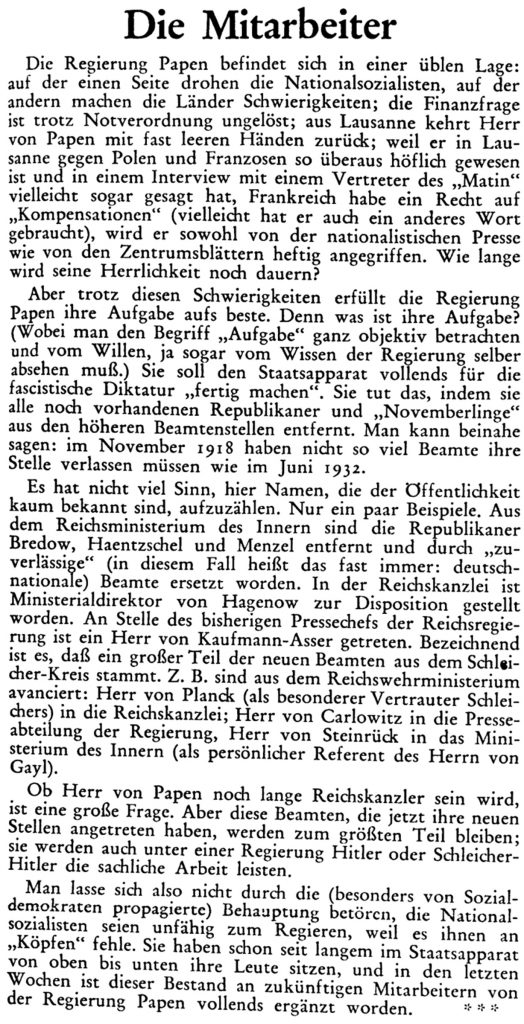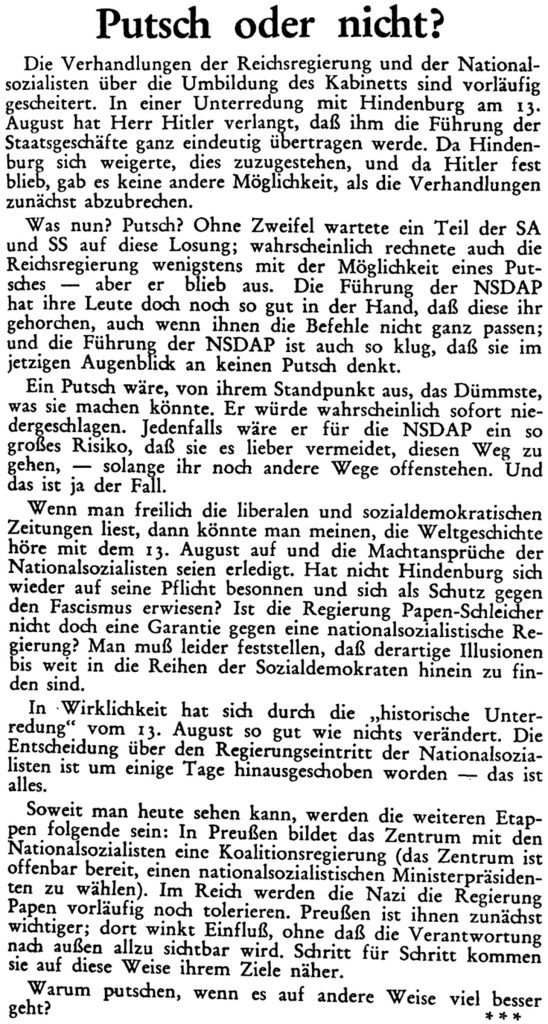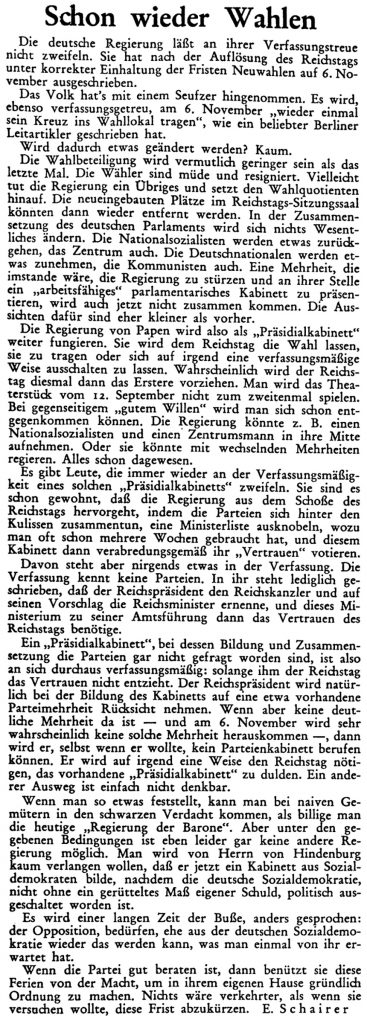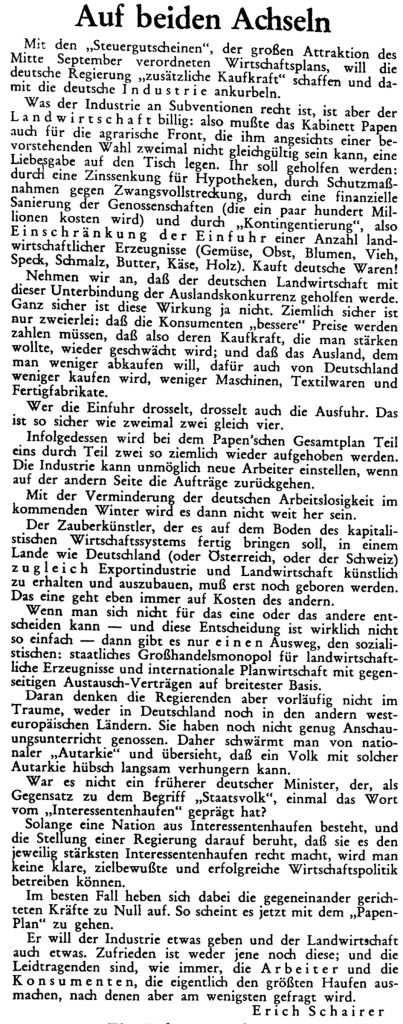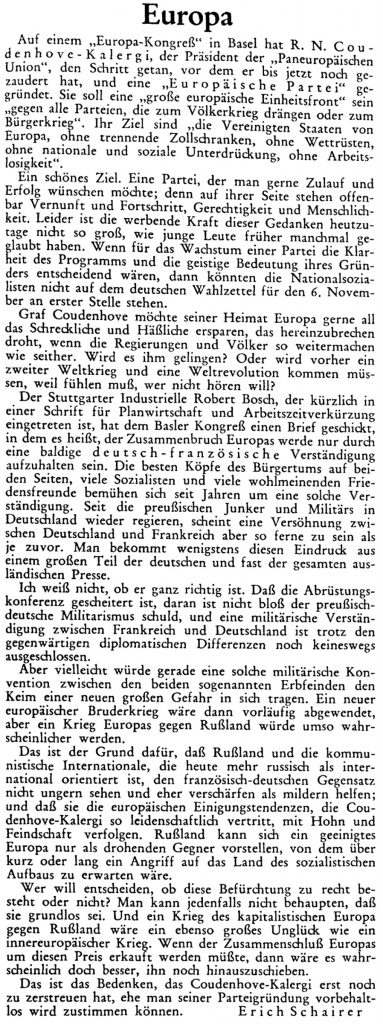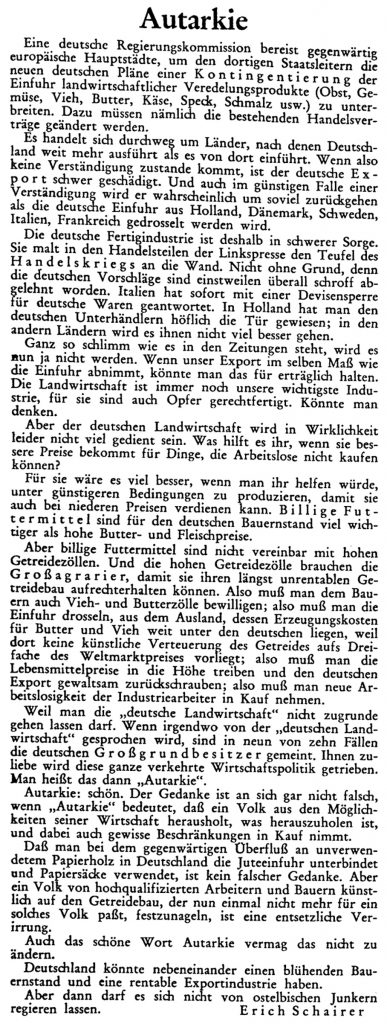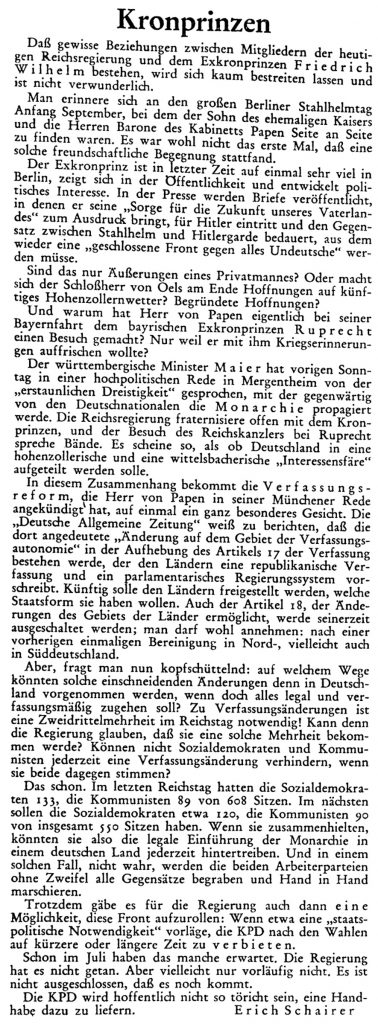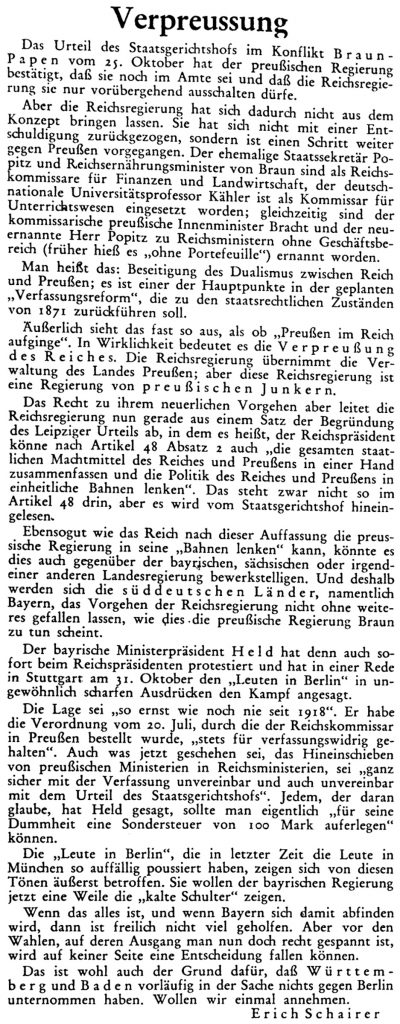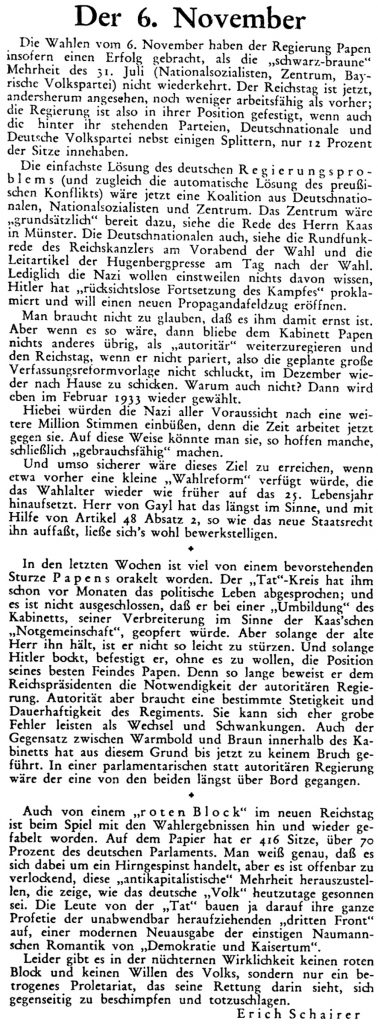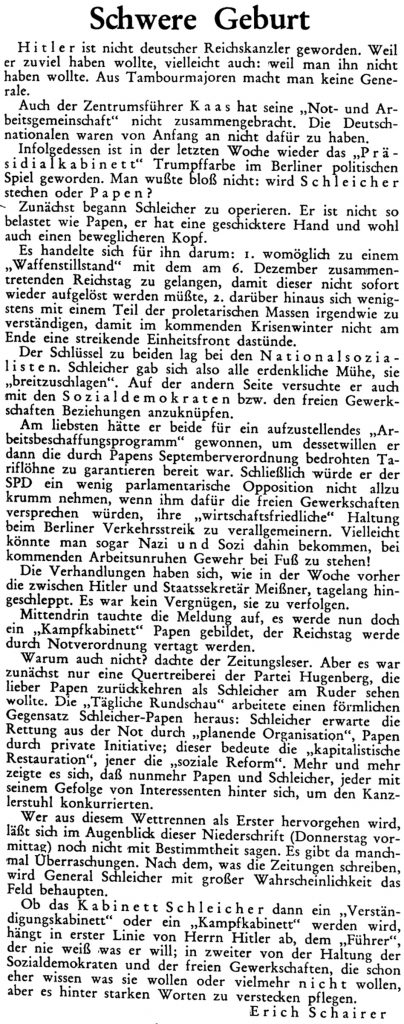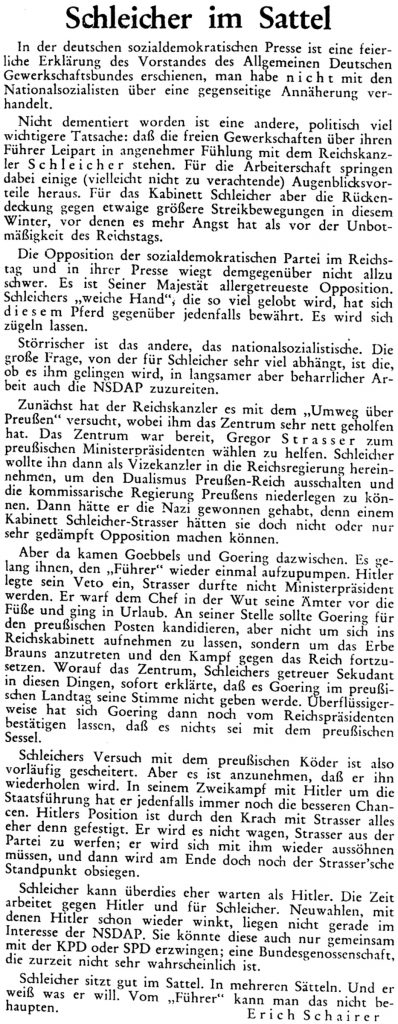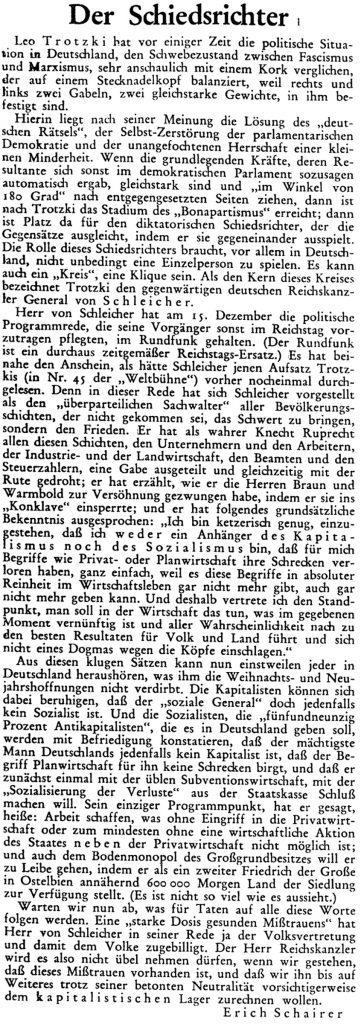Small chronicle to put the editorials in the historical context
January 15: Over six million people are in Germany unemployed.
26th January: Hitler's speech in front of the Düsseldorf industrial club
25. February: Adolf Hitler obtains the German citizenship.
March 13: In the first ballot of the Presidential elections wins incumbent Paul von Hindenburg clear before Adolf Hitler, but just misses the absolute majority.
10. April: Paul von Hindenburg becomes German again in the second ballot with 53% of the vote Reich President .
April 13: The ban on SA and SS in Germany by the Minister Wilhelm Groener In the government Brüning features. It costs the Chancellor sympathy with President Paul von Hindenburg and is approved by the government in June Franz von Papen canceled again.
May 13: Resignation of the Reichswehr and Interior Minister Wilhelm Groener
May 30: Chancellor resigns Heinrich Bruning
July 9: The German government under Franz von Papen reached the end of the Lausanne conference an end of im the Versailles Treaty imposed reparation payments. The opposition in the Reichstag feels that the negotiation result is insufficient.
July 17: At Altona Blood Sunday, a shootout between Communists, National Socialists and the police, 18 people are killed and 285 injured.
July 20: At the so-called Prussian coup is initiated by Imperial Chancellor Franz von Papen through a Emergency and proclaiming the military state of emergency the executive Prussian government, headed by Otto Brown, declared deprecated.
July 25: Poland and the Soviet Union close a non-aggression pact.
July 31: After the general election provides the NSDAP for the first time the strongest fraction.
September 12: Chancellor from Papen is overturned by a motion of no confidence and the Reichstag by the Reich President Hindenburg dissolved.
12. October: concordat zwischen dem Holy See and Baden
November 6: Reichstag elections, Loss of votes of the National Socialists
November 17: resignation of by Hindenburg supported Chancellor Franz von Papen
November 20: With the industrielleneingabe At Hindenburg, 20 business representatives are calling for Hitler to be appointed Chancellor.
November 29: France and the Soviet Union conclude a non-aggression pact.[1]
3th December: Kurt von Schleicher is from Hindenburg Imperial Chancellor appointed and with the formation of a new one presidential instructed after Franz von Papen previously on coalition cancellations by SPD and center has failed.
December 8: resignation Gregor Strassers from all party offices

